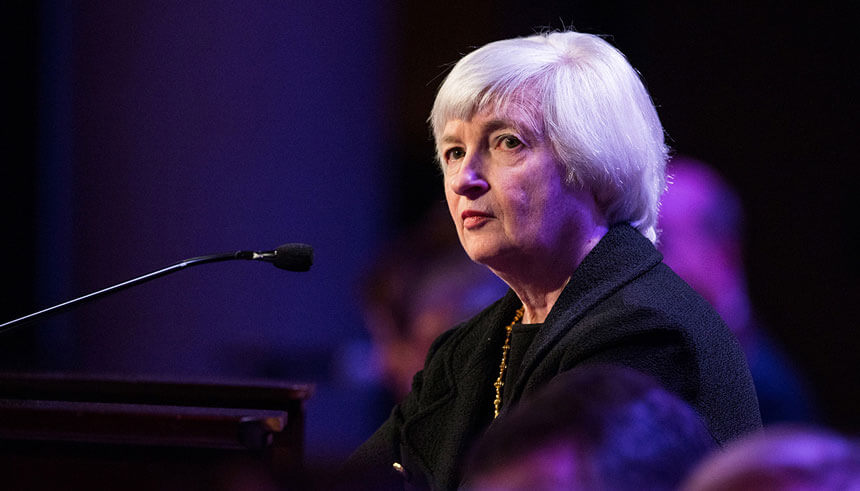US-Asia Business
US-China Market Watch: Trade Discussions, Huawei Export Licenses, “Dune”
By Angela Bao

Your monthly roundup of the latest US-China business and industry news.
U.S. and China continue discussions over bilateral relations
U.S. Treasury Secretary Janet Yellen and China’s Vice Premier Liu He held a video meeting on October 26 to discuss bilateral relations and the “macroeconomic situation.” According to a statement from China’s commerce ministry, both sides reportedly said that they needed to strengthen communication and coordination on macroeconomic policies, but the Chinese side expressed concerns over U.S. tariffs and treatment of Chinese companies. Although Yellen did not elaborate, in a separate statement she said that she “frankly raised issues of concern.”
Liu He has previously held talks with Yellen earlier this year, as well as with U.S. Trade Representative Katherine Tai. Earlier in October, Tai had a virtual meeting with Liu He to discuss China’s ability to meet trade commitments made under the Phase One trade deal. More recently, Tai said that her goal is to “bring the temperature down” on the trade discussions so that the two sides can better discuss what isn’t working about the relationship.
China experiencing an economic slowdown
China’s economy grew by just 4.9% in the third quarter this year, compared to the 7.9% increase in the second quarter, due to an energy crisis, shipping disruptions, and a property crisis.
The massive energy crisis has impacted factory output and even led to power outages in some areas. China is heavily reliant on coal, but a combination of high demand earlier in 2021 for construction projects and the government’s own goals of cutting down carbon emissions contributed to the crunch. Shipping delays have hit smaller Chinese manufacturers and led to lost orders and production cuts, while the Communist Party’s attempt to curb debt has greatly impacted real estate developers like Evergrande.
The curbs on the property sector started back in the summer of 2020, when Beijing required developers to cut down on their debt, but the government doubled down on that move earlier this year in an effort to lower home prices, which are blamed for China’s worsening income inequality. Property and its related industries make up as much as 30% of China’s gross domestic product and could be one of the biggest deterrents to China’s future economic growth.
U.S. issues $100 billion in export licenses to Huawei and SMIC suppliers
The U.S. Commerce Department issued more than $100 billion in export licenses to suppliers of China’s Huawei and Semiconductor Manufacturing International Corp. (SMIC) from November 2020 to April 2021, despite both companies having been blacklisted under the Trump administration due to national security concerns. In the midst of a global chip crunch, the Commerce Department granted 113 export licenses worth about $61 billion to Huawei suppliers and 188 export licenses worth about $42 billion to SMIC suppliers. Most of the licenses were for semiconductors and related manufacturing equipment.
According to the data, the U.S. government granted licenses for nine out of 10 applications for SMIC suppliers and 69% of requests for Huawei suppliers in that November to April time frame. The revelation reportedly “enraged” China hawks in Washington, although an unnamed former Commerce Department official stated that the numbers from this period are misleading and that the ultimate goal of the blacklist has been successful.
“Dune” opens at the Chinese box office
The highly anticipated science fiction epic “Dune” opened in China with a solid $21.9 million in its first weekend, which makes it Hollywood’s fourth largest opening in China for 2021. Maoyan, China’s top movie ticketing app, projects “Dune” to finish its run with approximately $35.2 million. However, the film performed particularly well at Imax theaters, earning $5.1 million, which makes 23% of the film’s Chinese box office earnings despite Imax accounting for only 1% of the total screens in the country.
Despite the hype, “Dune” did not manage to unseat Chinese war epic “The Battle at Lake Changjin,” which has now earned over $828 million since its release on September 30. The film was commissioned by the Communist Party’s propaganda department and depicts the defeat of the American army at the hands of the Chinese.
Tesla’s China sales reach almost half of U.S. sales
Tesla’s vehicle sales in China reached $3.11 billion in the third quarter of 2021, which is almost half of Tesla’s $6.41 billion in U.S. sales. China now makes up over 22% of Tesla’s total sales worldwide, up from just under 20% in 2020. Despite some public relations issues this year, Tesla’s Model 3 and Model Y are among the top three bestselling new energy vehicles in China’s market for the first three quarters of 2021.
China is the world’s largest auto market. In particular, China’s new energy vehicle industry is expected to comprise over 35% of new vehicle sales in the mainland in 2025, according to the CEO of Chinese electric vehicle company Xpeng. In November 2020, the Chinese government pushed a mandate that 40% of all car company’s sales must be of electric vehicles (EVs) by 2030, which is expected to dramatically boost the manufacture of EVs and related industries.
Sign up for the Reach Further Newsletter
We’ll keep you in the know about the latest US-Asia business news and trends.
Suscríbase al boletín Reach Further
Lo mantendremos informado sobre las últimas noticias y tendencias comerciales entre Estados Unidos y China.

